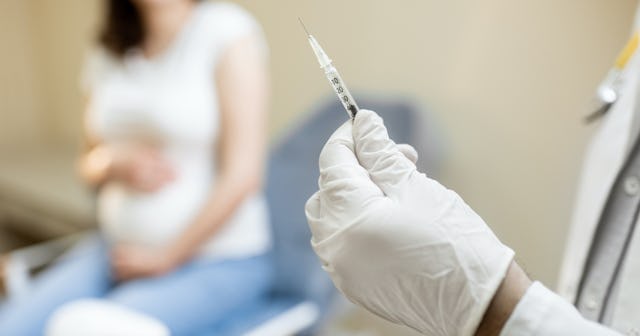Study: Pregnant Women Show Strong Immune Response To COVID Vaccine

Pregnant and breastfeeding mothers who receive the shot have a strong immune response – similar to women who have not conceived or given birth, scientists reported this week
A new study gives pregnant and breastfeeding women who are considering getting vaccinated against COVID-19 more information with which to make decisions about their health. COVID-19 can be more serious in pregnant women, with an elevated probability of hospitalization and death.
New and expectant mamas have new proof about the effectiveness of the COVID-19 vaccine.
The study was published in the American Journal of Obstetrics and Gynecology, and also found the mothers’ antibodies were present in their umbilical cord blood and breast milk, a welcome sign which suggests they transmit immunity to their babies.
The findings are important for OB-GYNs and other healthcare professionals who have faced “a complete lack of data” because pregnant and breastfeeding women were left out of the preliminary immunization trials, Dr. Andrea Edlow, a maternal-fetal medicine specialist at Massachusetts General Hospital in Boston and study co-author, told the Today show.
“It does seem like great news,” Edlow told Today. “This study is one piece of the puzzle that’s essential to try to give pregnant and lactating women evidence-based counseling around the vaccine.”
The study of 131 women of reproductive age was performed at two medical centers: 84 were pregnant, 31 were breastfeeding and 16 were used as the control group. All three groups received both doses of either the Pfizer or Moderna COVID-19 vaccine.
When scientists examined their blood afterward, vaccine-induced antibodies were identical in all three groups of women. Antibodies were likewise detected in umbilical cord blood and breast milk, suggesting “the baby does have protection, we just don’t know how long it will last,” Edlow said.
The antibodies created in response to the vaccine were at significantly greater densities than those seen in women who had previously had COVID-19, Edlow noted.
The study wasn’t designed to answer the question about the overall safety of the vaccine, Edlow acknowledged.
There are currently a small amount of data available about the safety of COVID-19 vaccines for pregnant women, but experts believe the shots are unlikely to pose a particular hazard for expectant moms, the Centers for Disease Control and Prevention stressed.
Tests in animals determined no safety issues. While the mRNA tech used by Pfizer and Moderna is new, the vaccine used by the Johnson & Johnson shot has been delivered to pregnant women before, notably in a large-scale Ebola vaccination test, with no negative effects.
The new study only looked at third-trimester vaccination, with more research underway about the best timing for getting the shot. For now, it makes sense to get the vaccine as soon it becomes available for you, Edlow said.
The American College of Obstetricians and Gynecologists recommends that COVID-19 vaccines should be offered to pregnant and breastfeeding women, who can make their own decision about whether to get the shot. The organization stresses that COVID-19 is more severe in pregnant women, with an increased risk of hospitalization and death.